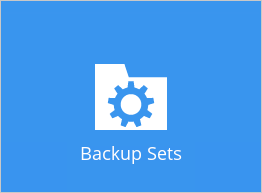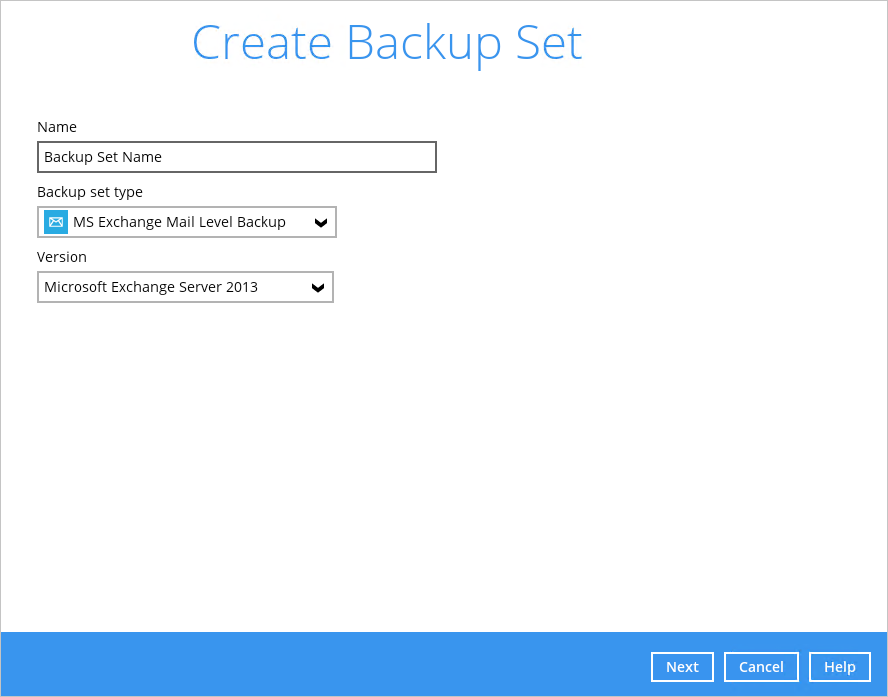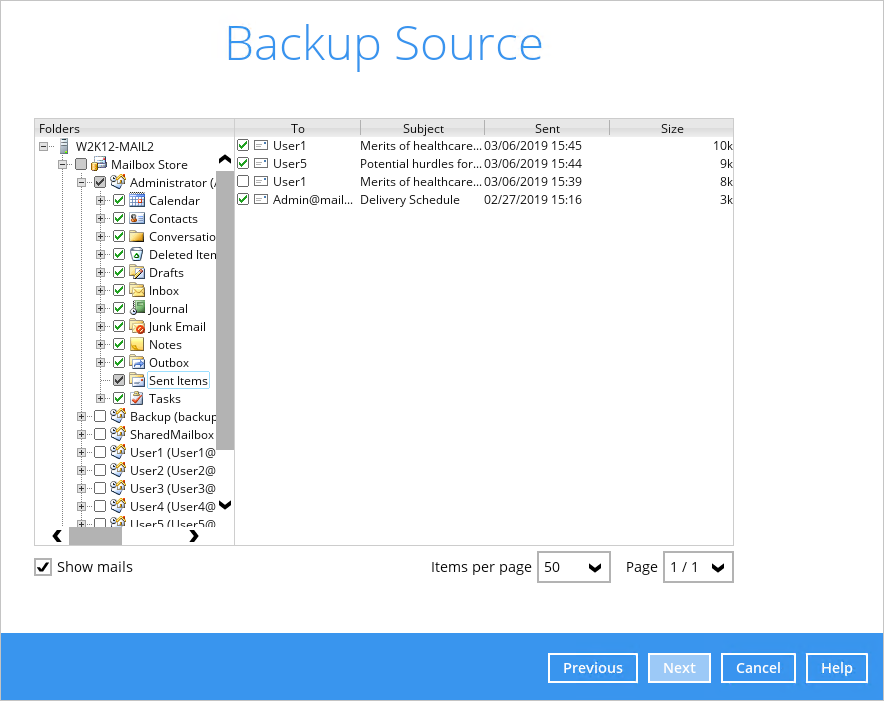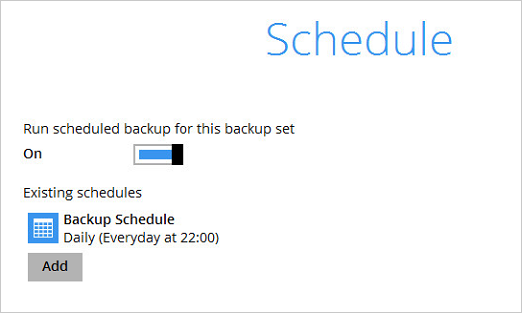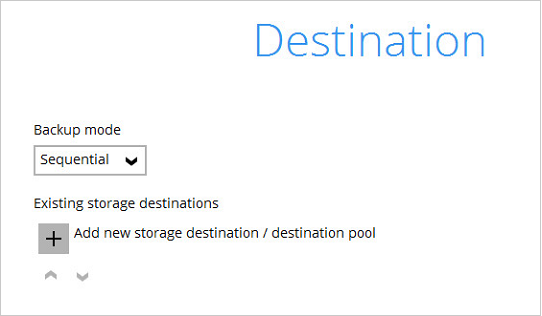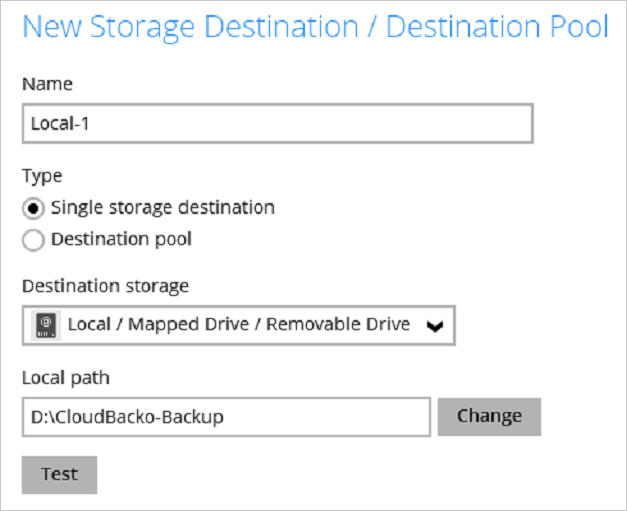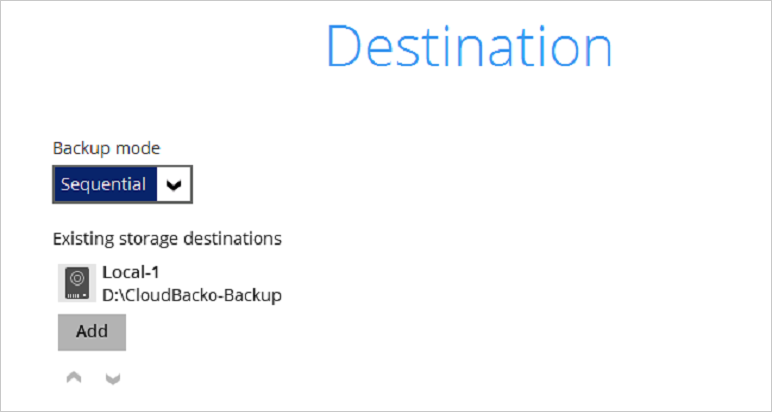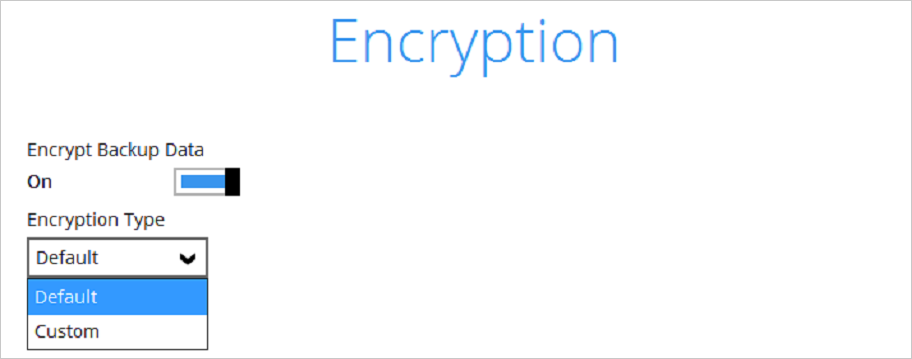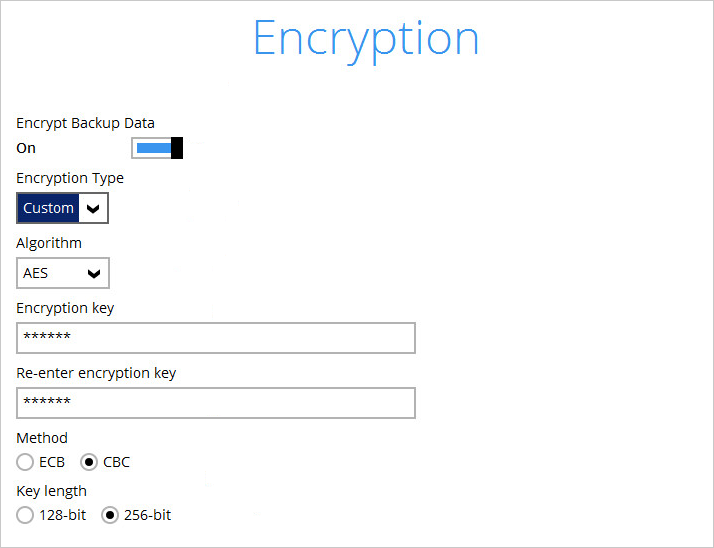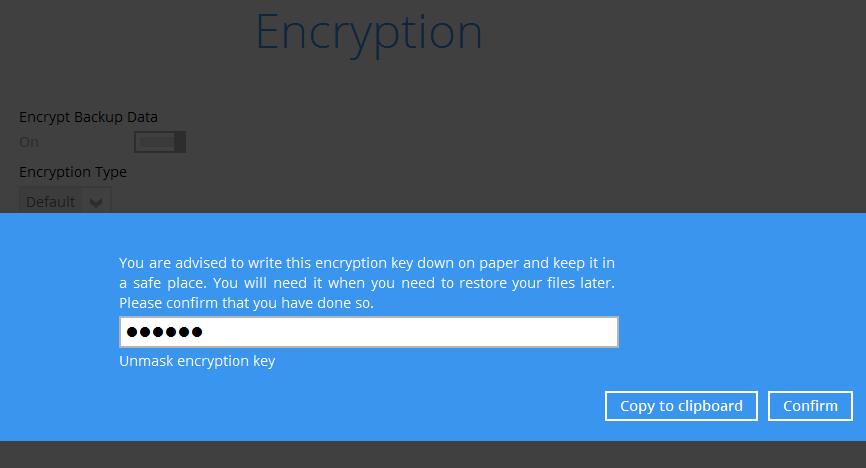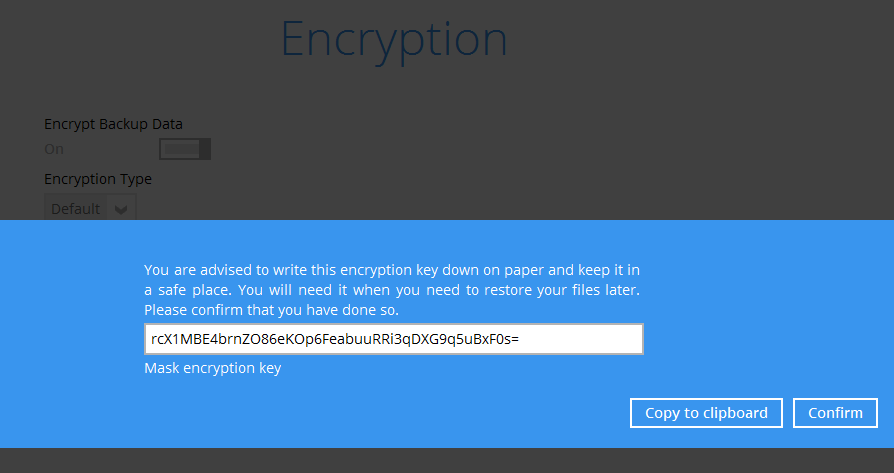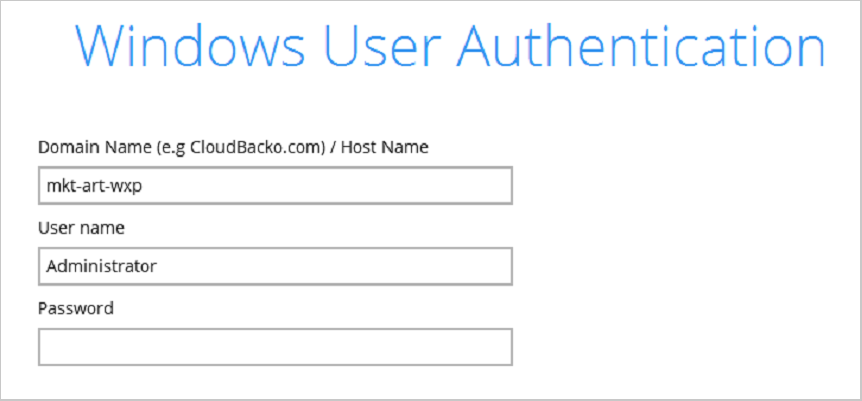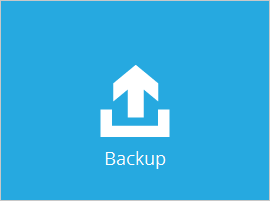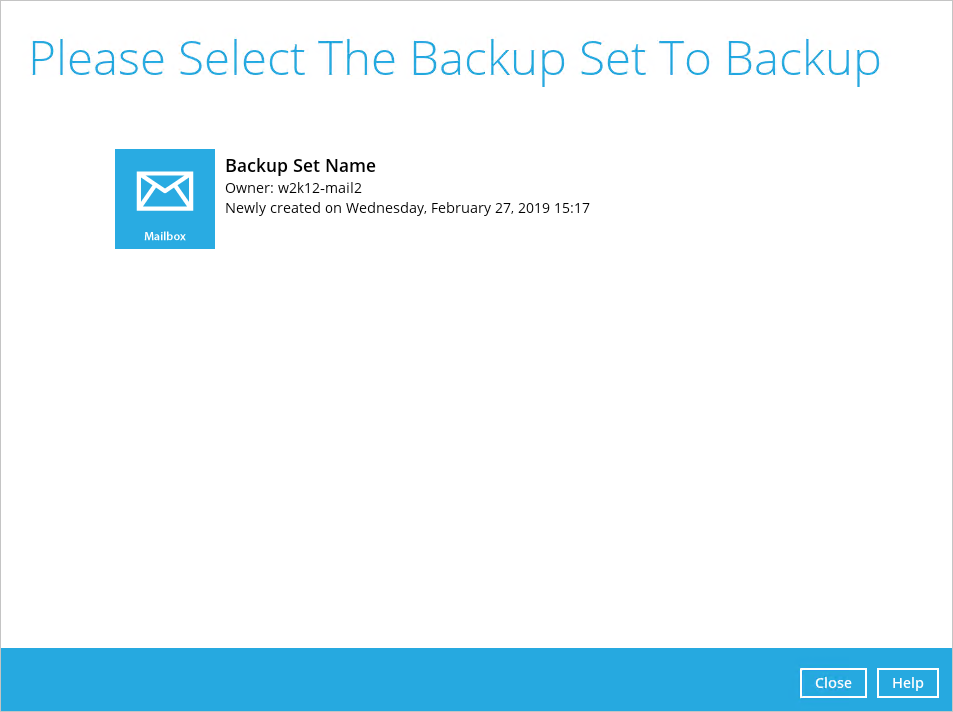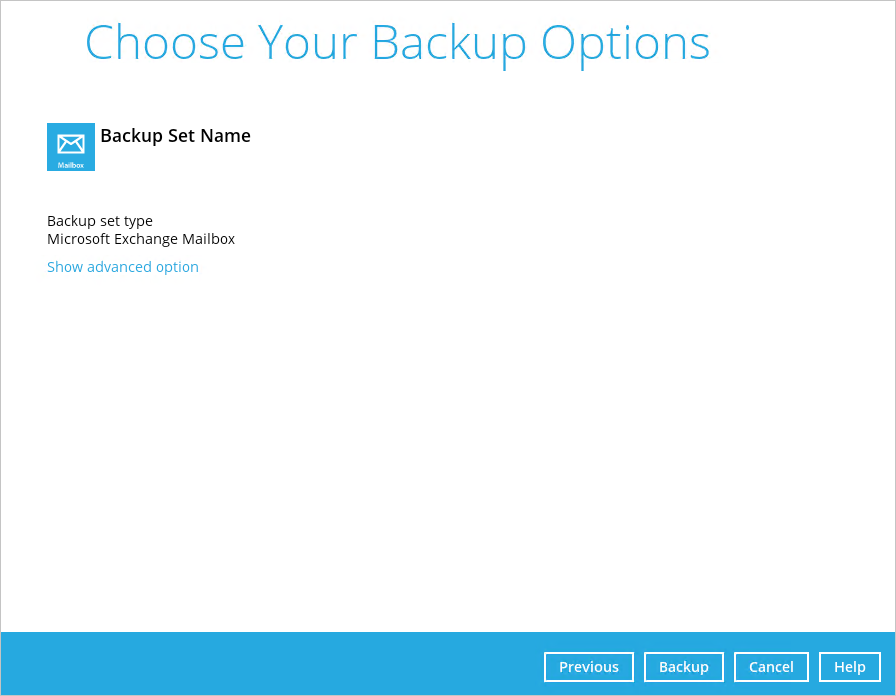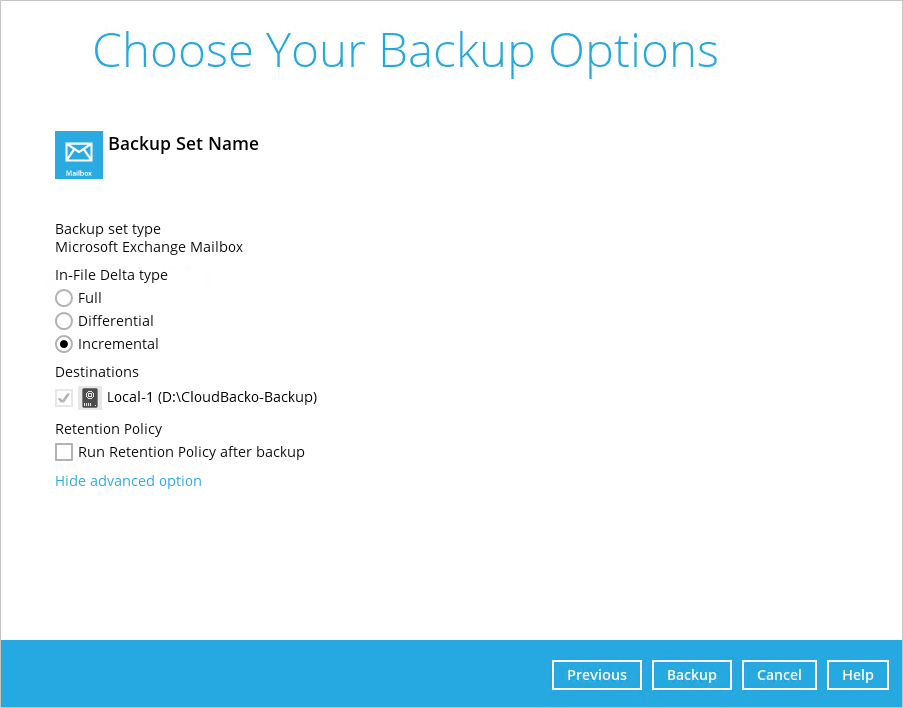User Tools
Sidebar
Mail-Level Backup on Standalone Exchange 2007 / 2010 / 2013
First of all, you need to create a mail-level backup set for your Exchange Server 2007 / 2010 / 2013. Then, you can run a backup manually, or wait for the scheduled backup to be run at defined start time.
Creating Backup Set
Below are the steps for creating a Mail Level Backup Set for your Microsoft Exchange Server 2007/2010/2013.
1. Click the Backup Sets icon on the main interface of CloudBacko Pro.
2. Create a new backup set by clicking the “+” icon next to Add new backup set.
3. Select the Backup set type as MS Exchange Mail Level Backup. The system will automatically detect and select the Exchange Server version, make sure the version selected is correct. Name your new backup set and then click Next to proceed.
4. In the Backup Source menu, select the Mailbox Store and/or Public Folder Store for backup. You can click to expand the mailbox store/public folder store to select which mailbox/folder to backup. You can also click Show mails to select individual mail to backup.
Click Next to proceed when you are done.
5. In the Schedule menu, you can configure a backup schedule for backup job to run automatically at your specified time interval. By default the Run scheduled backup for this backup set option is disabled. Enable it then click the “+” icon next to Add new schedule.
Click Next to proceed when you are done setting.
6. In the Destination menu, select a backup destination where the backup mail will be stored. Click the “+” icon next to Add new storage destination / destination pool.
7. Select the destination storage, then click OK to proceed.
8. Click Next on the Destination menu page to proceed.
9. In the Encryption window, by default the Encrypt Backup Data option is enabled with an encryption key preset by the system which provides the most secure protection.
You can choose from one of the following 2 Encryption Type options:
- Default – an encryption key with 44 alpha numeric characters will be randomly generated by the system
10. If you have enabled the Encryption Key feature in the previous step, the following pop-up window shows, no matter which encryption type you have selected.
The pop-up window has the following three options to choose from:
- Copy to clipboard – Click to copy the encryption key, then you can paste it in another location of your choice.
- Confirm – Click to exit this pop-up window and proceed to the next step
11. Enter the Windows login credentials for user authentication. Click Next to proceed.
The Windows User Authentication interface will show only if scheduled backup is enabled and set successfully.
12. The following screen shows when the new backup set is created successfully.
13. Click Backup now to start a backup immediately, or you can run a backup job later by following the instructions in Running Mail Level Backup Job for Microsoft Exchange 2007/2010/2013.
Run Backup Manually
Below are the steps for manually triggering a backup.
1. Open CloudBacko Pro backup software.
2. Click the Backup icon on the main interface of CloudBacko Pro.
3. Select the backup set which you would like to start a backup for.
4. If you would like to modify the In-File Delta type, Destinations and Retention Policy settings, click Show advanced option.
5. Click Backup to start an initial backup manually.
Scheduled Backup
Scheduled backup for your mail level backup set will be run automatically at the start time that you have configured in the backup set creation process.

